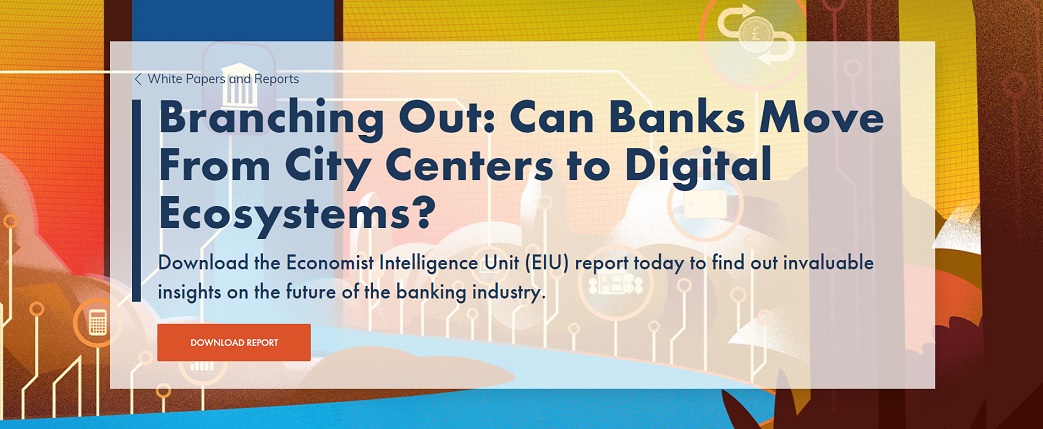
Almost two thirds (65%) of global banking executives believe that the branch-based model will be “dead” within five years, up from 35% four years ago. 47% expect their businesses to evolve into ecosystems, involving partnerships with both banking and non-banking third parties. Four in five bankers believe that banks will seek to differentiate on customer experience rather than products. This independent global report surveys over 300 banking executives, half of whom are C-suite.
A new report recently published by Temenos (SIX: TEMN), the banking software company, finds that 65% of global banking executives believe branch-based banking will be “dead” within five years. The report written by the Economist Intelligence Unit (EIU) entitled “Branching out: can banks move from city centres to digital ecosystems?” is based on a recent survey of 305 senior global banking executives.
The report highlights how 65% of global banking executives view new technologies such as cloud, AI, and APIs as the trend that will have the biggest impact on the sector over the next four years, ahead of regulation and changing customer demands. Moreover, 81% think unlocking value from AI will be the differentiator between winning and losing banks. Banks are focusing their technology investment on cybersecurity, AI and cloud computing as they accelerate digital transformation projects.
The report finds that 81% of bankers believe banks will seek to differentiate on customer experience rather than products. With this, many established banks are turning to strategic partnerships and investments in technology to become trusted banking partners and the purveyors of consumer-friendly banking experiences.
The pandemic has been a catalyst for collaboration and experimentation. The report states that nearly half (47%) of bank executives expect their businesses to evolve into ecosystems in the next two years, whereby banks offer third-party products and services, together with their own, to customers and other financial organizations.
Aalishaan Zaidi, Global Head of Digital Banking at Standard Chartered notes the change in attitude and culture as a result of the pandemic:
“The big shift for us was our belief that we could change fast if we really wanted to.” Mr. Zaidi adds that pre-pandemic, “We would have never done the partnerships we are doing now.”
The report also shows how the pandemic has emphasized the societal role of financial services. Findings show that bankers view microfinance for entrepreneurs (34%) and accounts for the unbanked (33%) as the most promising inclusion-related business opportunities.
Kanika Hope, Chief Strategy Officer, Temenos, said:
“Open Banking and increased competition from big tech and new entrants are causing banks to rethink their business models. Many now aspire to develop digital ecosystems that bring more human, differentiated experiences to their customers using the power of cloud, SaaS and AI.
This report shows that bankers now understand that technology will be an enabler for these new business models and is critical to their competitive differentiation.”
Banking 4.0 – „how was the experience for you”
„To be honest I think that Sinaia, your conference, is much better then Davos.”
Many more interesting quotes in the video below: